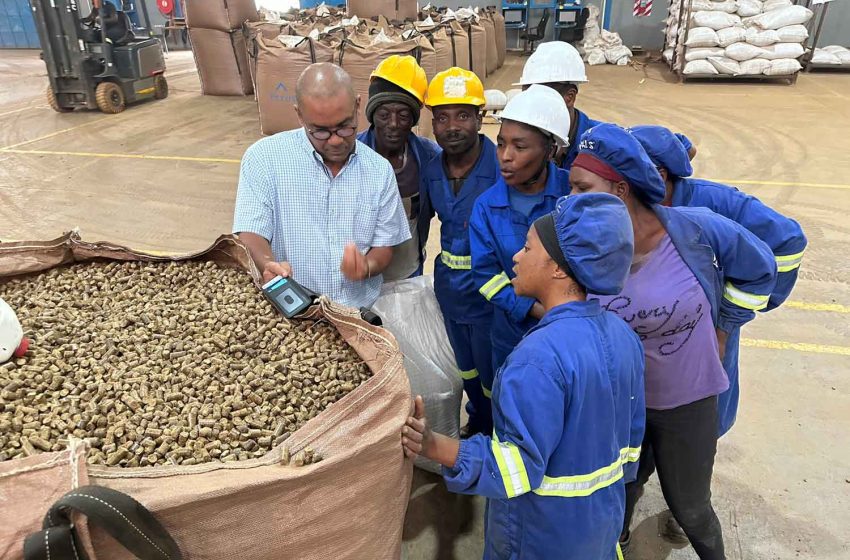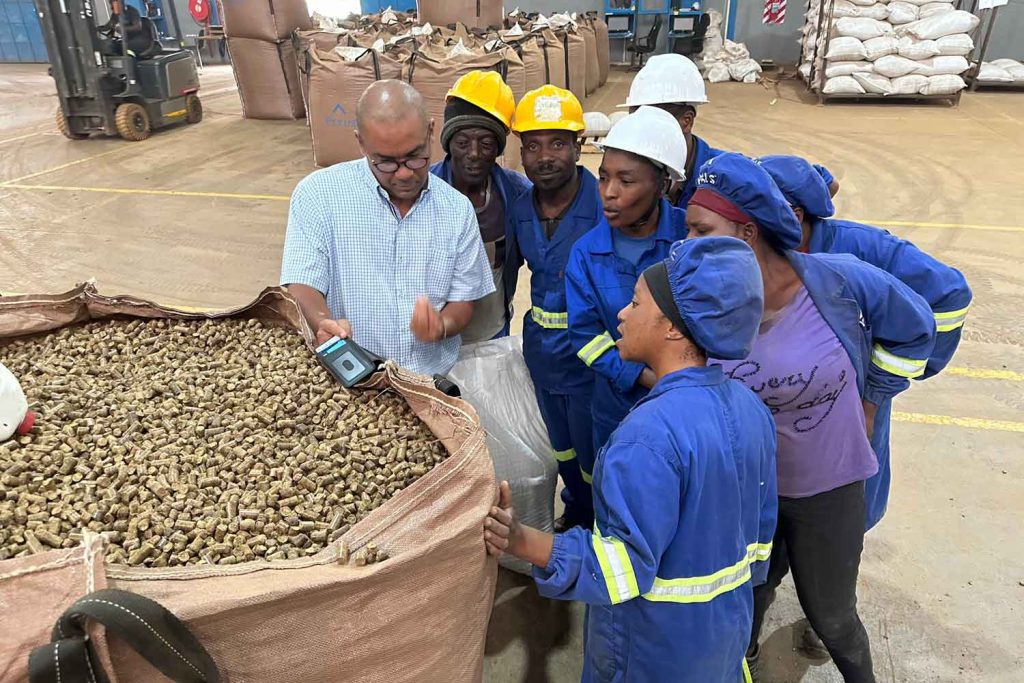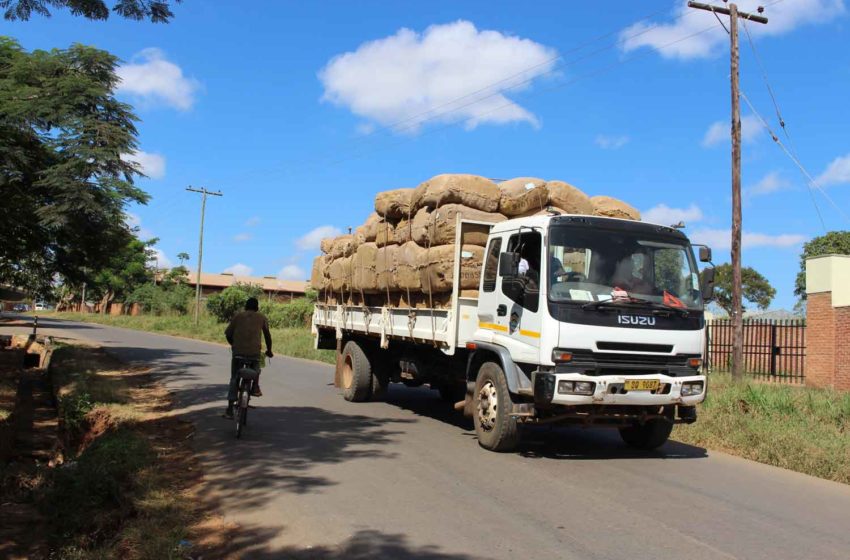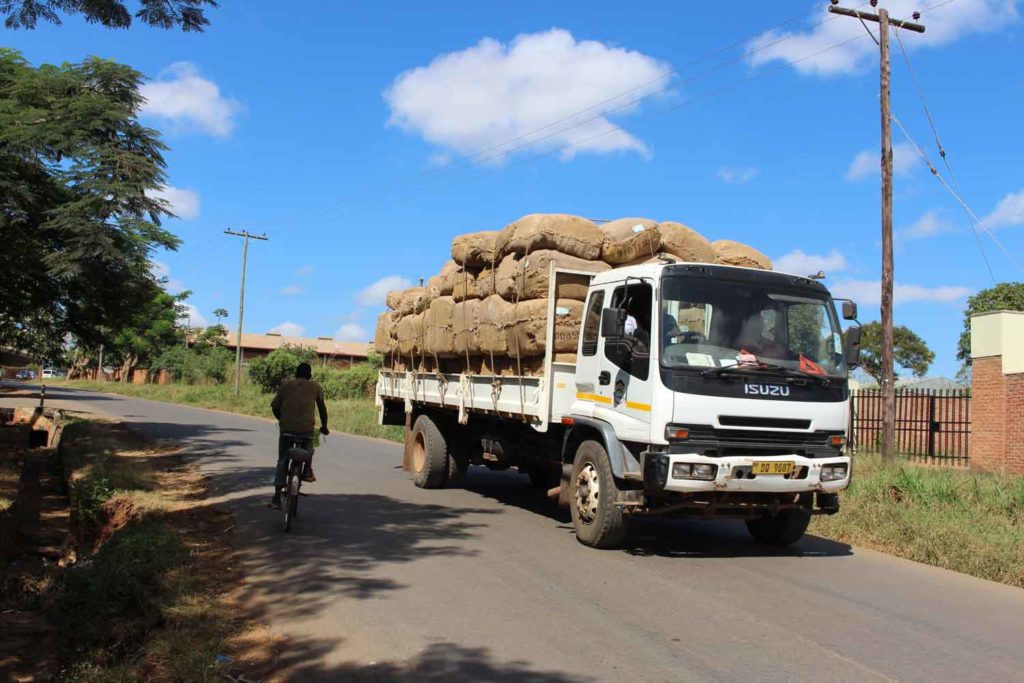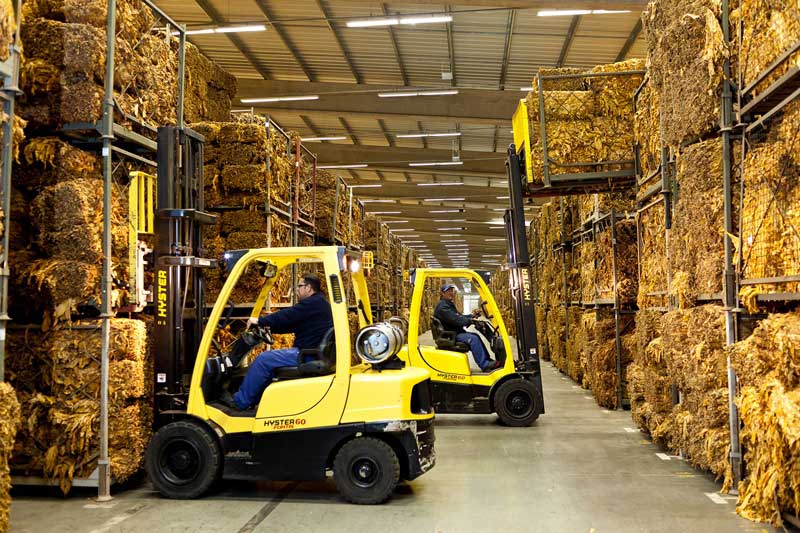Boosting Volumes and Quality
Tapping into its large network of tobacco field technicians, Pyxus also started offering extension services to groundnut farmers. “We have more than 150 qualified extension officers training farmers on a daily basis to assist farmers achieve better yields and quality while also ensuring track-and-trace capabilities to export into international markets,” says Ngwira. At 1 metric ton per hectare, average groundnut yields have traditionally been low in Malawi. With better cultivars, inputs and agricultural practices, however, it should be possible to increase those yields to 3 metric tons per hectare, according to PAM. Ngwira says the company will follow the same journey it took when implementing the integrated production system in tobacco, where years of farmer training resulted in substantially improved productivity and loan recovery rates.
PAM’s investments in groundnuts are paying off already. In 2021, Malawi’s government set the minimum selling price of groundnuts at MKW330 ($0.32) per kilogram. Owing to the quality produced by its contracted farmers, Pyxus was able to offer a minimum price of MKW440 per kilogram, according to Ngwira.
PAM is also tackling the problem of aflatoxins, poisonous carcinogens produced by certain molds that can impact agricultural crops. Historically, Malawi groundnuts have suffered from comparatively high levels of aflatoxins, but with better agricultural practices, such as quick drying to prevent the formation of fungi, it is possible to reduce contamination to below the tolerances prescribed by export markets.
In March 2022, PAM inaugurated a $3 million processing factory in Lilongwe’s Kanengo, where it not only cleans, shells and sorts the groundnuts but also turns the leftover shells into fuel pellets. Built in a disused tobacco warehouse, the facility employs more than 100 people and has the capacity to process 50,000 tons of groundnuts per annum. It is the largest groundnut shelling plant on the African continent outside of South Africa.
Addressing Malawi President Lazarus Chakwera and other dignitaries attending the opening ceremony, Ngwira noted that factory was key to unlocking Malawi’s potential for agricultural industrialization—which is in line with the government’s commitment to promote exports through value addition for agricultural crops.
Ngwira is excited about the prospects for Malawi groundnuts. In addition to growing demand from major markets such as China and India, there is also a huge appetite for the product regionally. “Currently, most Malawi groundnuts are exported to the Lake Victoria region,” he says. Already home to more than half a billion people, the area’s population is projected to grow significantly. “Malawi can help supply the protein to feed those people,” says Ngwira.
To cater to the anticipated demand, PAM aims to rapidly expand its contacted farmer base from about 7,000 smallholders at the time of the factory opening to about 30,000 in the future. In the process, it will not only create additional sources of incomes for its contracted farmers but also provide Malawi with a welcome supplement to tobacco as a source of much-needed foreign exchange.—T.T.


